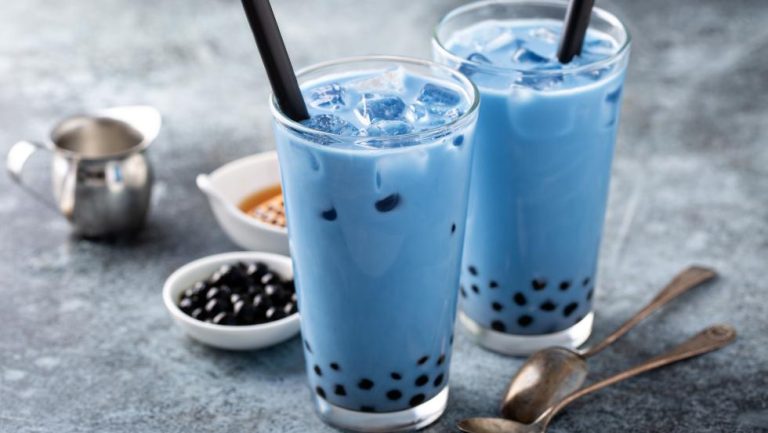
Is Iced Tea Healthy
Is Iced Tea Good for You? Analyzing the Health Benefits and Risks
Iced tea is one of the most popular beverages worldwide, prized for its refreshing taste and hydrating properties. But is regularly drinking iced tea actually healthy? Or does it come with adverse effects that counter potential benefits? Let’s dive into the nutrition profile, ingredients, and preparation methods to uncover the truth about iced tea’s wellness impact.
Beneficial Antioxidants in Tea
The teas used as a base for iced tea like black, green, and white tea contain various health-promoting compounds. Most significantly, tea is packed with antioxidants called polyphenols including EGCG, flavonoids, and catechins. These antioxidants exhibit anti-inflammatory, anti-cancer, and cholesterol reducing effects in studies.
The polyphenol content remains fairly consistent whether tea is iced or hot. So iced tea provides similar antioxidant benefits to hot tea. Just note that green tea has higher overall antioxidant levels compared to black tea. Herbal iced teas offer far less antioxidants, but some wellness benefits from their unique blend of botanicals.
Hydration and Electrolytes
The major advantage of the iced tea is hydration, as it consists primarily of water. Water is essential for cellular function, organ health, digestion, waste removal, and metabolism. Iced tea can help you meet daily fluid intake needs, especially in hot weather when hydration is crucial.
It also naturally provides electrolytes like potassium, calcium, and magnesium – minerals lost through sweat that are vital for muscle and nerve function. So for both hydration and electrolyte replenishment, unsweetened iced tea is an ideal summertime beverage.
Caffeine Content to Consider
Caffeinated varieties of iced tea like black and green do include a moderate dose of caffeine, typically around 15-50mg per 8oz serving. That’s around half the caffeine content of coffee. For healthy adults, this modest caffeine hit provides a little energy boost without significant risks.
However, caffeine can impact sleep, anxiety, digestion, and headaches in those sensitive. Pregnant women are also advised to limit caffeine intake to under 200mg daily. Excess caffeine consumption may increase frequency of urination as well. Herbal blends contain no caffeine, making them a safer choice for caffeine-sensitive individuals.
Potential Benefits for Heart and Brain
Some studies link regular tea consumption with benefits for heart health and cognitive function. The antioxidants may improve blood pressure, cholesterol levels, and blood vessel function. Compounds in green tea especially show promise for boosting brain activity. The anti-inflammatory properties of tea may also play a role in chronic disease prevention.
However, research has not yet confirmed direct causation between long term tea drinking and lower disease rates. Population based studies that rely on participant surveys may be subject to confounding factors. More rigorous clinical trials are still needed to verify health benefits. For now, view iced tea as helpful but not a miracle cure.
Watch Your Sugar Intake
One of the biggest downsides of iced tea lies in the high sugar content of many ready-to-drink bottled and canned options. Pre-made iced teas often contain over 30 grams of added sugar per 12oz serving. That’s almost as much as a can of soda. All this excess added sugar contributes unnecessary calories and spikes blood sugar.
To keep sugar at healthy levels, brew your own iced tea at home. Avoid presweetened mixes and only add minimal honey if desired once tea is prepared. Lemon can provide touch of sweetness as well. For store bought teas, examine labels and select unsweetened varieties or those sweetened with non-nutritive sweeteners if you don’t mind the aftertaste.
Acid Erosion Concerns
Experts warn that the high acid content in some iced teas may gradually damage tooth enamel and irritate digestive tissues over time. Black tea tends to be the most acidic, followed by green tea. Herbal blends are less acidic. Swishing water after drinking, using a straw, or rinsing with baking soda solution can help neutralize the acids.
If you have sensitive teeth or digestive issues aggravated by acidic foods, moderate your consumption or switch to herbal iced tea. The cold temperature of iced tea allows you to drink it faster, exposing teeth to acids for longer periods before the natural saliva neutralization process can kick in. So sip slowly and pay attention to any increased dental sensitivity or gastric discomfort if drinking iced tea regularly.
The Verdict on Iced Tea
Overall, pure iced tea made properly without added sugars contains antioxidants, hydration and some possible wellness advantages for healthy adults. But it shouldn’t be viewed as a superfood or therapeutic tonic on its own. As part of a balanced diet, unsweetened iced tea can be incorporated safely by most people and provide enjoyment especially in hot weather. Just adjust your consumption if you notice any adverse impacts. Moderation and mindful ingredient choices are key to making iced tea a healthy beverage choice.
:max_bytes(150000):strip_icc()/Southern-Living_Long_Island_Iced_Tea_STEPS_076-1-661b4a152bea4d8188c0d37c57325d6f.jpg)
Conclusion
Iced tea can be a healthy beverage choice when consumed in moderation and as part of a balanced diet. Its potential health benefits, such as antioxidant content and hydration, make it a favorable option for many individuals. Incorporating unsweetened or lightly sweetened iced tea into your daily fluid intake can contribute to your overall hydration and potentially provide the body with protective compounds found in tea.
However, it’s important to be mindful of the potential drawbacks, such as added sugars and other sweeteners in commercially prepared or flavored iced teas. These can significantly increase the calorie and sugar content, potentially negating the health benefits. Therefore, opting for homemade iced tea with minimal or no added sugars is a preferable choice.
Additionally, excessive consumption of iced tea, particularly varieties containing high levels of caffeine, may lead to negative health effects for some individuals, such as disrupted sleep patterns or increased heart rate. It’s important to be aware of your caffeine sensitivity and intake levels to prevent any adverse effects.
Ultimately, the healthiness of iced tea depends on various factors, including the type of tea used, the presence of added sugars or sweeteners, and individual dietary needs and preferences. By making informed choices and being mindful of ingredients, iced tea can be a refreshing and healthful addition to your beverage options.
:max_bytes(150000):strip_icc()/SES-long-island-iced-tea-and-variations-759315-hero-01-8bcfcbc0ad804d6c908942b732e9fc92.jpg)



